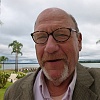Washington’s Ebola plan creates global sticker shock
In
Log in if you are already registered
A strain of the Ebola virus has killed 5,000 people in a handful of West African nations with Mali the latest addition to the list. Meanwhile, an Ebola strain has spread to the United States, Western Europe and possibly elsewhere.
Turning the fear factor into a pandemic greater than Ebola itself, the Washington Post on October 25th, published an article suggesting that Russia and the Soviet Union have manufactured “Ebola” at a secret facility, with the further implication that Russia may be involved in the current outbreak. This is an insidious attempt to revive a Cold War disinformation campaign in which Washington and Moscow traded accusations linked to the AIDS crisis. Ebola was discovered in 1976 in Central Africa. Its legend, which includes transmission by fruit bats, gorrillas and humans has an intriguing similarity to the controversial legend that helped spark the AIDS disinformation controversy.
All major powers and some extremist nations operate secret, sophisticated chemical and biological warfare programs that, in the name of national security, operate beyond the scope of diplomacy and United Nations scrutiny.
Obama’s first response to Ebola was strategic
The initial response by the Obama administration was a military one, with the Pentagon announcing expansion of the U.S. Africa Command in Liberia to support military activities in the region, and, tangentially, to address the Ebola outbreak. Meetings with senior Algerian officials firmed up security relations between Washington and Algeria, whose southern border occupies a strategic position alongside Ebola hotspot nations who harbor extremist cells.
With president Obama’s approval rating down to 40 percent on the eve of critical midterm elections and the U.S. leader facing strong criticism from Republican opponents seeking to gain control of Congress the White House was jolted when the American president of the World Bank, Jim Kim, set a price of $32.6 billion to mediate the Ebola outbreak over the next 18 months (some sources peg the cost at $38 billion) exclusive of the Africa Command that will be covered by U.S. taxpayers.
Spanish speaking Latin America, Brazil at risk
With the Latin-West African drug trafficking axis an important link for the "drug security" of Western Europe the region U.S. secretary of state John Kerry calls "our backyard" could be an Ebola accident waiting to happen. In the crackolandias of Sao Paulo drug dealers from West Africa, who have ties to human traffickers, are a common fixture on the streets. What makes them stand out is their reluctance to learn Portuguese. Brazil tested its Ebola reponse network on a suspected carrier from West Aftrica. After testing at two different hospitals under quarrantine, he was released at a town at the border with Paraguay. Latin American officials monitoring Illegal immigration into Paraguay and Bolivia largely overlook the Ebola risk. So far no Latin American nation has made a financial commitment to support Obama's Ebola campaign.
European Union offers chump change
Germany joined other EU nations at a recent EU summit to help provide a paltry $31 million to fund the Ebola response in West Africa. German finance minister Wolfgang Schaubele is already pessimistic about the future of the Euro and around the 25 Euro zone banks in the fuzzy netherworld of not fully meeting European Central Bank “stress tests.” The IMF has pledged $130 million in funding and has relaxed credit restrictions to stabilize the economies of West African Ebola nations. But these sums fall way short of Ebola’s $32 billion price set by Washington.
Obama’s new strategy, funding Ebola like a startup
Media reported the arrival on Sunday of U.S. ambassador to the United Nations Samantha Power in West Africa to assess what so far has been a problematic response to the Ebola outbreak and determine how to encourage nations to put up more money to support the project. She told media that she will report back to president Obama, who has the situation on his “speed dial.”
Power told NBC and other media that the presence of a U.S. cabinet member (herself) on the ground in an “Ebola hot spot” will help assuage the fears and panic of Americans and inspire confidence among residents in the United States whose scattershot and xenophobic policies toward the virus and those connected to it are creating social tensions in the name of “states’ rights.”
At least three major international drug makers have shifted big money into developing unproven Ebola vaccines, hoping for to reap substantial profits once governments are convinced to cover the tab. But with major powers unwilling to contribute $32 billion in today’s crisis economy Obama will be unable to sell the Ebola crisis package like a Silicon Valley startup.
While Ebola may kill 10,000 in West Africa there have been 191,000 deaths in the Syrian civil war, and the meter is running on the kill count in the new U.S.-led war Al Qaeda and ISIS in Iraq. This is consistent with the failure of current world order diplomacy discussed by Henry Kissinger in his new book.
Ambassador Power told media that funding the Ebola initiative will create opportunities for new heroes to go to West Africa to help contain the disease. But right now in a world without money Ebola needs a miracle. The future of diplomacy needs one too.




